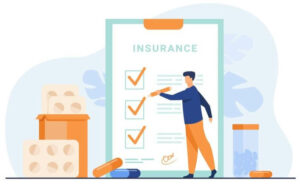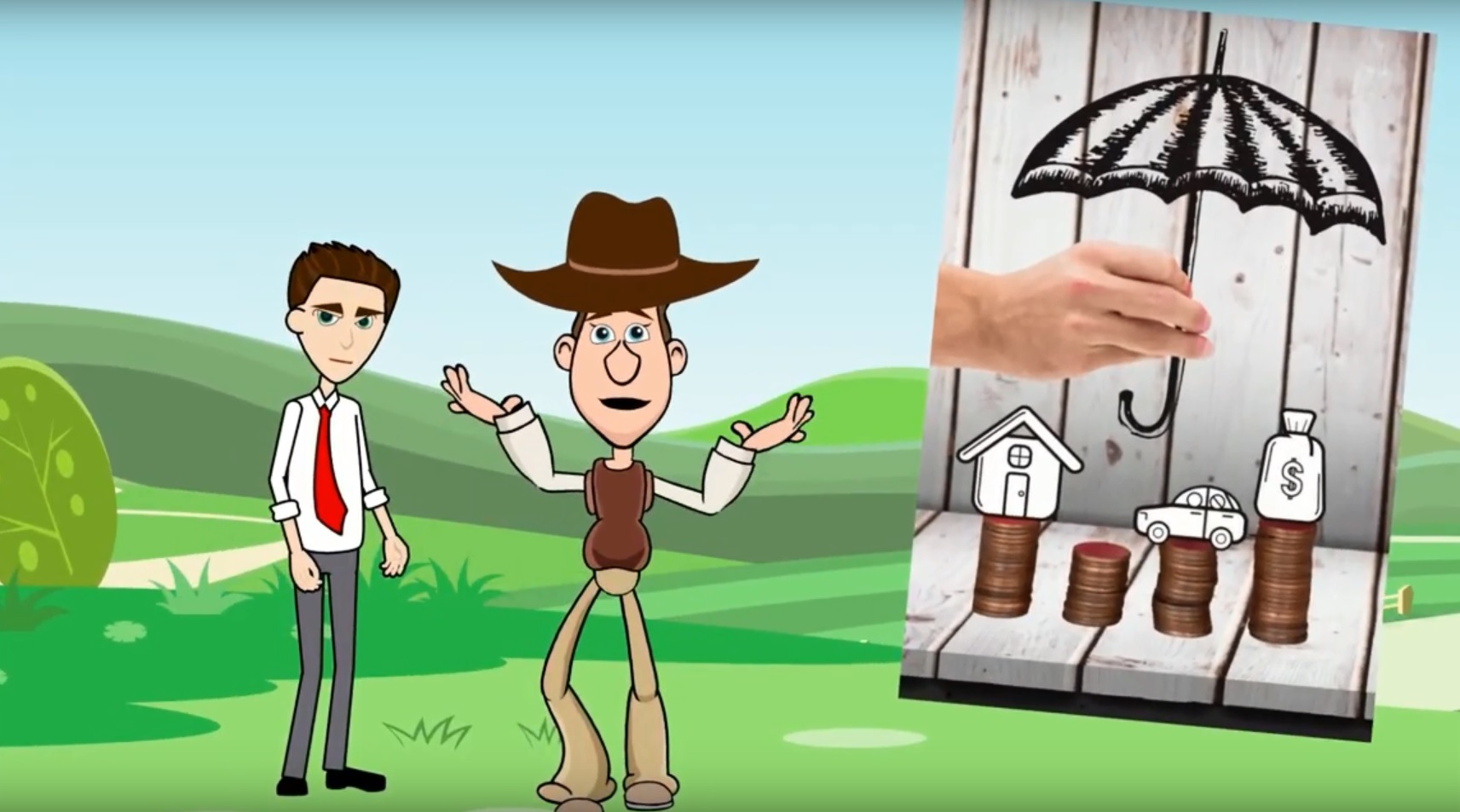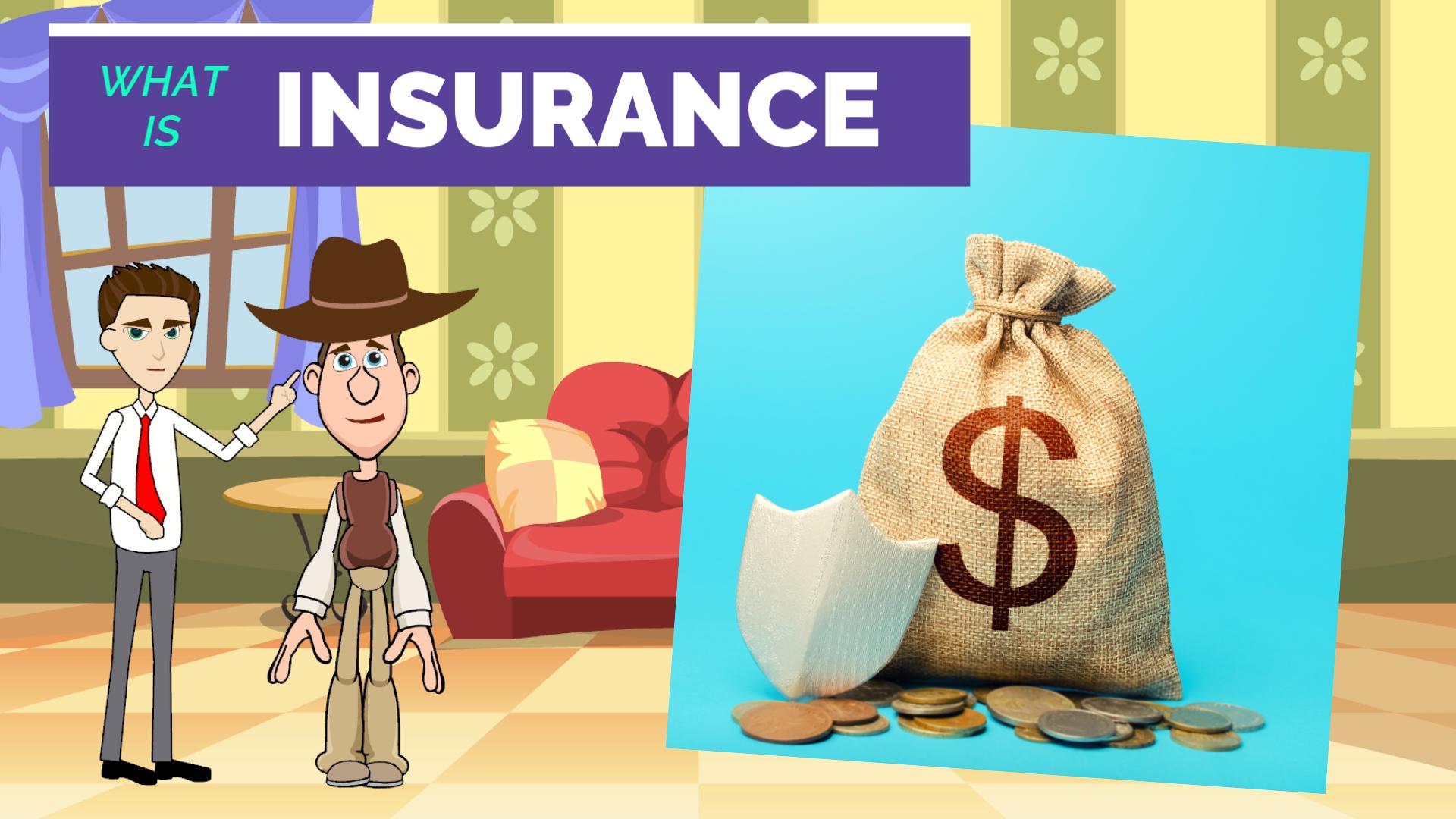Part 1: What is Insurance, How Does Insurance Work, How to File a Claim
Part 2: Why is Insurance Important, Key Insurance Terms, Types of Insurance, How to Choose the Right Insurance
Introduction to Insurance for Kids’ Financial Literacy
This video explains the concept of insurance in a simple, concise way for kids and beginners. It could be used by kids & teens to learn about insurance, or used as a money & personal finance resource by parents and teachers as part of a Financial Literacy course or K-12 curriculum.

Suitable for students from grade levels:
- Kindergarten
- Elementary School
- Middle School
- High School
The topics covered are:
- What is insurance
- How does insurance work
- How do you file a claim
- Why is insurance important
- Key terms you should know about insurance policies
- What types of insurance are available
- How do you choose the right insurance
Old Version
- What is insurance
- What is covered by insurance
- How does insurance work
- How much does it cost
- Does the insurance premium change over time
- How long is the insurance cover valid for
- Who should buy insurance
What is insurance?

Insurance is a tool that is designed to protect against unforeseen financial losses.
It is a contract between a policyholder who can be an individual or a business, and an insurance company.
The policyholder pays a certain amount – called the premium – at a regular predetermined interval.
And in return, the insurance company promises to cover financial losses due to accidents, theft, injury, etc., that are included in the policy.
For example, if someone paying a $50 premium every month for car insurance gets into an accident, the insurance company will pay for the repairs.
How does insurance work?
Insurance is based on the principle of risk pooling.
You first need to submit an application and get approved. The approval, the exact terms of the coverage, and the premium amount are based on the insurance company’s assessment of your risk.
When you pay the premium, the money goes into a pool along with the premiums of many other policyholders. When a policyholder suffers a loss that is covered by their policy, they file a claim with the insurance company, and if approved, the insurer pays them out of this pool.
Not everyone will claim at the same time, which allows the insurance company to manage and spread the risk across a large group.
Of course, if you stop paying premiums, your coverage will lapse and you will no longer be protected against financial losses.
This system is a win-win for the company and the policyholder.
The insurance company makes a profit as the premiums paid are higher than the total amount of claims they have to pay. And the policyholder can be assured that they will not be financially impacted by an unexpected event.
How do I file a claim?
Let’s look at an example: if you’re driving a car and get into an accident, you can file a claim with the insurance company to get reimbursed.
You’ll first need proof of the accident – such as pictures or a police report. You then submit a claim with the insurance company, which can usually be done online.
The insurance company reviews your claim and if found valid, reimburses you based on the terms of your policy.
However, it’s important to note that most insurance policies will not pay you the full amount of damages.
Policies have a deductible, which is a certain amount of money you need to pay before insurance kicks in. In addition, there is a policy maximum, which is the maximum amount you can be reimbursed for a certain time period.
Therefore, if your deductible for auto insurance is $500 and the maximum is $50,000 per year, you will only be reimbursed for damages between $500 and $50,000.
Why is insurance important?

Even if you have savings and an emergency fund, a sudden unexpected expense can have a devastating impact on your family’s financial future.
Insurance provides financial protection against significant potential losses from unexpected events like sudden hospitalization, car accident, home damage, theft, expensive lawsuits and even death.
At an otherwise stressful time, not worrying about arranging for the money to cover the financial loss gives tremendous peace of mind.
What are the key terms I should know about insurance policies?
Premium is the fee the policyholder pays the insurance company at fixed intervals for coverage. It could be monthly, quarterly, semi-annual or annual.
Coverage limit is the maximum amount the insurance company pays for a covered loss. This limit could be set per period, per loss or over the lifetime of the policy, called the lifetime maximum.
Deductible is the amount the policyholder needs to pay before the insurance company pays anything. It can apply per claim or policy.
For example, if your auto insurance has a $1,000 deductible, and you get into a car accident where the total damage is $3,000, you’ll have to pay the first $1,000, and your insurer pays the remaining $2,000.
Generally, the higher the deductible, the lower the premium, as the likelihood of claims is reduced by the high out-of-pocket expense.
What types of insurance are available?

There are many types of insurance to protect against different risks.
The most common types include:
- Health insurance which covers routine and emergency medical expenses
- Auto insurance for damage to your vehicle or liability to 3rd parties
- Life insurance that pays the beneficiaries after the policyholder’s death
- Homeowner’s insurance which covers damage to your home and belongings
There are also other types of insurance, such as:
- Travel insurance that covers losses due to trip cancellations or lost baggage
- Disability insurance that covers a portion of your income if you are temporarily disabled
- Renters’ insurance that covers losses due to fire, theft, vandalism, etc. in a rental accommodation
- Legal or liability insurance that offers access to legal representation and provides coverage for expensive lawsuits
How do I choose the right insurance?
Selecting which types of insurance – and which exact insurance policy – is right for you depends on your specific needs and circumstances.
But generally, make sure to look at the coverage, premiums, and deductibles before choosing one.
What is Insurance: Old Version
Howdy Wall Street Willie. I heard my friends talk about insurance.
What is insurance anyway?
Well, insurance is something that protects you financially against a loss, which means that if something goes wrong, the insurance company will pay you.
Well, what can be covered by insurance?
Anything of value can be covered by insurance.
For example, a house, the contents of the house or whatever’s inside the house, a car or someone’s life.
Also, piano players – since their fingers are very important – they can cover their fingers with insurance, and soccer players’ legs are very important so they can cover to their legs with insurance.
Ha ha, that’s funny!
How does insurance even work?
Well, you pay a premium or amount of money to the insurance company, so that the insurance company can pay you if whatever you have insured gets damaged, destroyed or stolen.
You also have to file an insurance claim to let the insurance company know that something has happened.
Well, is insurance really expansive?
It depends on what you insure and the kind of insurance.
For example, home insurance that covers fire and theft won’t be very expensive. But if you also add insurance for flooding in a coastal area or area around a river, it can become more expensive.
Does the amount of money that you pay to the insurance company, or premium, change?
Again, it depends on the kind of insurance that you have.
Because in life insurance, the premiums usually will not change from one year to another if you have bought it for a long term.
But for other kinds of insurance, like home insurance and car insurance, the rates or premium can change every year. And the insurance premium usually will go up after you make a claim or tell the insurance company to pay you because whatever you have insured gets damaged destroyed or stolen and they pay you.

How long is the insurance cover valid for?
Well, how long are you gonna be covered for?
Like, will the insurance company pay you if something happens forever, or just for a certain amount of time?
Well, the insurance company will pay you for whatever amount of time you have bought the insurance for.
For example, life insurance can be bought for many years, but most other kinds of insurance are bought for a year and they’ll need to be renewed or paid again every year.
Who should even have insurance?
Everyone should have insurance. And depending on what you own and whether you have any dependents, you can have different kinds of insurance or multiple kinds of insurance.
Click to Tweet
We’ll cover each type of insurance in detail another time…
Thank you very much for telling me about insurance, Wall Street Willy.
You’re welcome, Sooper Cooper. Remember, finance is your friend!
Video Featured in the Below Financial Literacy Courses for Kids and Teens
Download Transcript: Ideal for Use by Teachers in their Lesson Plan to Teach Kids and Teens
Podcast: What is Insurance?
Fun, informative and concise episodes by a 10-year old, breaking down complex financial concepts in a way that kids and beginners can understand. Episodes cover personal finance topics like saving, investing, banking, credit cards, insurance, real estate, mortgage, retirement planning, 401k, stocks, bonds, income tax, and more, and are in the form of a conversation between a cowboy (a finance novice) and his friend, a stock broker. Making finance your friend, only at Easy Peasy Finance.
A little bit about me: I have been fascinated with the world of personal finance since I was 6! I love to read personal finance books, and keep myself updated on the latest by reading various personal finance magazines. My friends often ask me questions about finance because they find it complex and intimidating. That’s what inspired me to start my YouTube channel called Easy Peasy Finance when I was 8, and this podcast 2 years later.
All about basics of insurance: what is insurance, different types of insurance, what can be covered by the insurance, how does insurance work, what is premium – is insurance really expansive, does the insurance premium change over time, how long is insurance cover valid for, who should have insurance, and more. Show notes and transcript at: https://easypeasyfinance.com/what-is-insurance/


